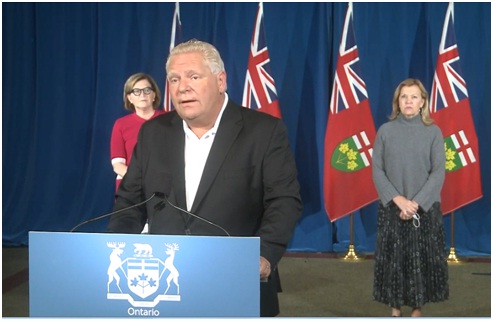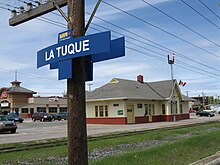Ontario Providing over Half a Billion Dollars to Protect Vulnerable Seniors against Second Wave of COVID-19
New Investments Part of the Government’s COVID-19 Fall Preparedness Plan
The Voice of Canada News:
TORONTO — The Ontario government is investing close to $540 million to protect residents, caregivers, and staff in long-term care homes from future surges and waves of COVID-19. The funding is part of the province’s COVID-19 fall preparedness plan, Keeping Ontarians Safe: Preparing for Future Waves of COVID-19.
Details of the plan were shared by Premier Doug Ford, Dr. Merillee Fullerton, Minister of Long-Term Care, and Christine Elliott, Deputy Premier and Minister of Health.
“We have a responsibility to protect our most vulnerable, while ensuring they continue to have access to the best medical staff and their caregivers,” said Premier Ford. “We are taking every step possible to fortify that iron ring of protection around our long-term care homes and that includes updating the visitor policy. I encourage family members to identify as essential caregivers at the homes, so they can continue to visit and support both the physical and mental well-being of their loved ones and all the residents.”
As part of the Fall Preparedness Plan, the government is enabling necessary renovations and measures to improve infection prevention and control, shoring up personal protective equipment (PPE) stockpiles, and building a strong health care workforce.
The new investments include:
- $405 million to help homes with operating pressures related to COVID-19, including infection prevention and containment measures, staffing supports, and purchasing additional supplies and PPE;
- $61.4 million for minor capital repairs and renovations in homes to improve infection prevention and control. These repairs and renovations may include minor upgrades to support physical distancing, plumbing or water supply cleaning, updating HVAC systems, or repairing or replacing furniture and equipment that cannot be fully cleaned;
- $40 million to support homes that have been impacted by the changes in occupancy numbers due to COVID-19. As the sector has been directed to stop admissions of third and fourth residents to larger rooms, a key source of income for each operator will be impacted. This funding will help stabilize the homes through the transition to lower occupancy rooms;
- $30 million to allow long-term care homes to hire more infection prevention and control staffing, including $20 million for additional personnel and $10 million to fund training for new and existing staff. This new funding will enable homes to hire over 150 new staff;
- $2.8 million to extend the High Wage Transition Fund to ensure that gaps in long-term care staffing can continue to be addressed during the pandemic;
- Provide all long-term care homes with access to up to eight weeks of supply of PPE so they are prepared in case of outbreaks. This supply will be available starting the week of October 5, 2020. The province will also continue to deliver PPE within 24 hours of urgent requests;
- The government continues to look at innovative solutions to provide more care where and when people need it. Through the skills of community paramedics and working with municipal partners, the government will be making an investment to help people on the long-term care waitlist stay in their own homes longer.
“COVID-19 demands a culture of continuous learning: the more we learn, the better we can plan and prepare for future waves,” said Minister Fullerton. “Our government is committed to applying what we have learned during this outbreak to build and strengthen a long-term care system that works in the best interests of our residents and the people who work so hard to keep them safe.”
“Protecting the health and safety of Ontarians, especially those who are at higher-risk like seniors and residents living in long-term care homes, is our top priority,” said Minister Elliott. “The actions our government is taking to protect our loved ones along with the critical investments we are making to strengthen the long-term care sector will ensure our homes are prepared for the second wave of COVID-19 and the upcoming flu season.”
The province will also be making changes to its visitor policy to long-term care homes, to ensure that long-term care homes in areas of highest community spread are able to continue to keep residents safe and prevent the spread of COVID-19 within their homes. Effective Monday, October 5, 2020, visitors to long-term care homes in these areas will be restricted to staff and essential visitors only, which includes essential caregivers.
Residents and substitute decision-makers are encouraged to identify up to two individuals as essential caregivers. Doing so will ensure the continuation of visits and support the physical and mental well-being of residents at the home.
Essential caregivers must continue to follow all public health measures, including having a negative COVID-19 test within two weeks of a visit, passing active screening at the home, wearing a mask and additional PPE as directed, and practising frequent handwashing.
The province’s COVID-19 fall preparedness plan will help the province quickly identify, prevent and respond to any scenario in order to protect communities. The Keeping Ontarians Safe plan will:
- Recruit, retain, train and support health care workers, while also continuing to engage families and caregivers;
- Implement the largest flu immunization campaign in Ontario’s history;
- Maintain strong public health measures, including continued expansion of testing and case and contact management;
- Quickly identify, manage and prevent COVID-19 outbreaks;
- Accelerate efforts to reduce health service backlogs; and
- Prepare for surges in COVID-19 cases.
QUICK FACTS
- Starting on September 25, 2020 Ontarians can get tested for COVID-19 at pharmacies if they are not showing symptoms and are a worker, visitor, or resident of high-risk settings, such as a long-term care home, shelter, or another congregate setting. They may also include any individual identified as part of a targeted testing campaign as directed by the Ministry of Health, Ministry of Long-Term Care or by local public health.
- In September 2019, the High Wage Transition Fund was extended while the government developed new programs to improve how long-term care is delivered in Ontario. The original end date of the fund was December 31, 2020. Due to the impact of COVID-19, the High Wage Transition Fund will be extended until March 31, 2021.
- The province reconvened the Long-Term Care Incident Management System (IMS) structure in September. The Long-Term Care IMS Table monitors the data and organizes efforts to make rapid decisions that support long-term care homes in need. This includes those struggling to control outbreaks, complete infection prevention and control assessments, ensure appropriate staffing levels, access PPE, and complete the testing of long-term care home residents and staff.
- The province will continue to facilitate temporary management partnerships between Ontario hospitals and long-term care homes to help the homes manage resident care in response to COVID-19 outbreaks. Thirteen partnerships have been facilitated since May.
- Launched in April, the province’s Health Workforce Matching Portal has helped make over 650 staffing matches for long-term care homes.








